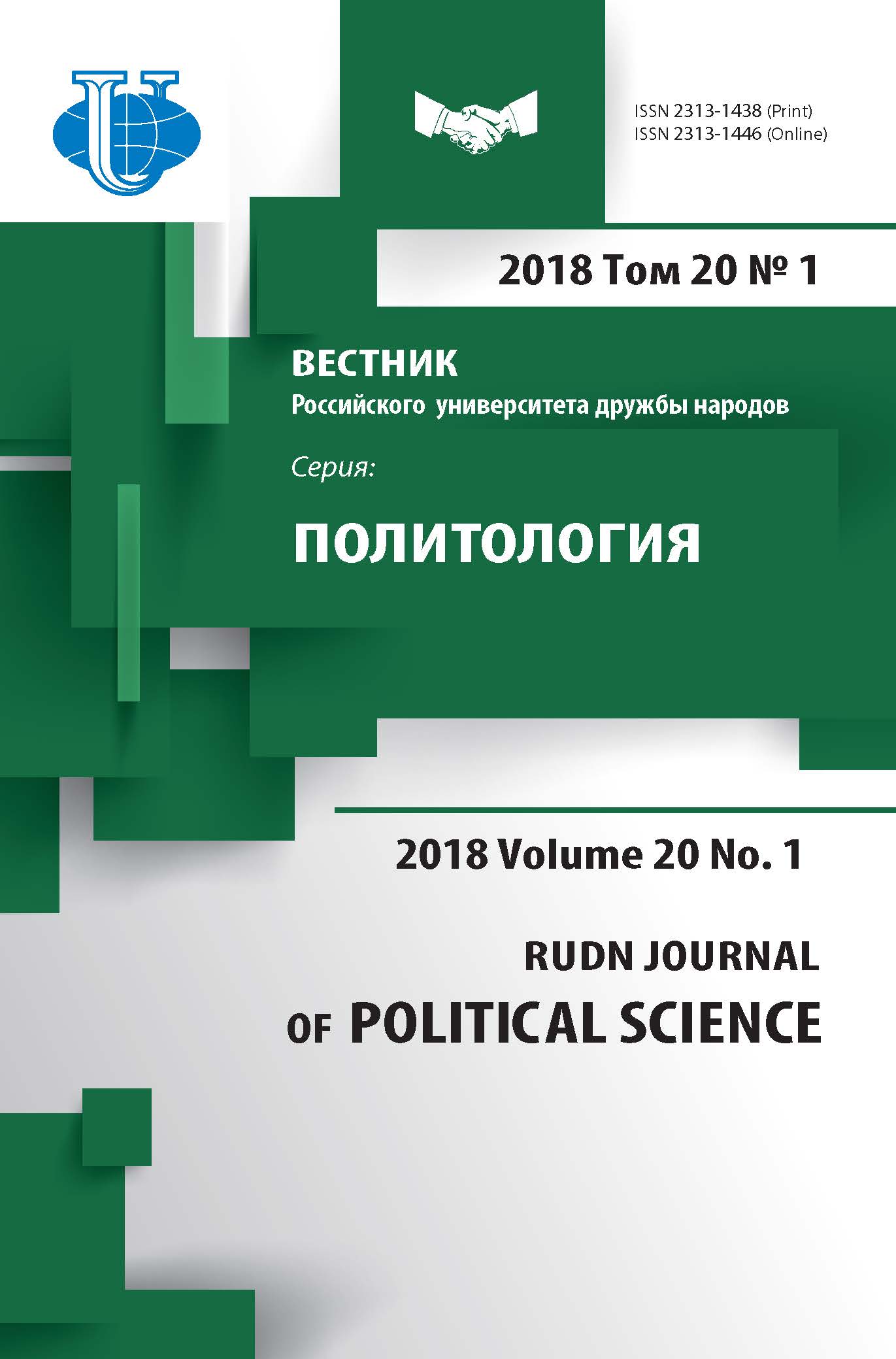Global Political Aspects of Putin’s Speech at the 43-th Munich Security Conference. One Decade Past
- Authors: Parkhitko N.P.1, Martynenko E.V.1
-
Affiliations:
- Peoples’ Friendship University of Russia (RUDN University)
- Issue: Vol 20, No 1 (2018)
- Pages: 7-20
- Section: Political processes in the modern world
- URL: https://journals.rudn.ru/political-science/article/view/18123
- DOI: https://doi.org/10.22363/2313-1438-2018-20-1-7-20
Cite item
Full Text
Abstract
In February 10th 2007 President of Russia V. Putin held a speech at the 43th Munich Security Conference. The speech included both the matters of security and global policy. Researchers in Russia together as well as their western colleagues (political scientists, journalists, historians and other analysts) obviously came to the same opinion - that was the speech of the Russian president that attracted all the attention to this annual conference not being so traditionally popular as, for example, the “G-8” or the APEC summits. And though the estimations of the ideas advocated by Putin in his speech predictably differ depending on political creed and engagement of the analysts (sometimes that was also the matter of their erudition), the importance of the event was undisputable. Today one decade past the event we have the opportunity not just to analyze the crucial principles which Putin tried to clarify to his foreign partners, but also to verify them through the prism of approbation, as the scientists say. But before we start to study the speech itself, we should reveal the global political circumstances, in which the Conference took place. What was Russia as a global power in the beginning of the XXI century and was it a true global power in 2007? Was the political weight of the Russian president enough for bringing the influence into the world? Finally, what was the perceptions of Russia in the western community 15 years after the greatest transformation of the global political role of the country in Europe and in the world? After finding the answers on these questions we will reveal the main theses of the Russian presidents’ speech and will try to give them possibly candid estimation. In the work the authors used a wide methodological list. The historical-analytical method made it possible to reveal the evolution of the problems outlined in the speech of V.V. Putin for the specified time period (10 years). The comparative method allowed us to compare the basic conditions in which Russia was at the time of the president’s speech in Munich in 2007 and the conditions in which our country is today. The method of political forecasting underlies the construction of the main conclusions and forecasts, which determine the scientific and theoretical novelty of the study.
Keywords
About the authors
Nickolay Petrovich Parkhitko
Peoples’ Friendship University of Russia (RUDN University)
Author for correspondence.
Email: scharnchorst@mail.ru
PhD in History, associate professor of the Department of Theory and History of Journalism
Miklukho-Maklaya str., 6, Moscow, Russia, 117198Elena Viktorovna Martynenko
Peoples’ Friendship University of Russia (RUDN University)
Email: martynenko_ev@rudn.university
PhD in politics, head of the Department of theory and history of journalism
Miklukho-Maklaya str., 6, Moscow, Russia, 117198References
- Vneshnepoliticheskaja i diplomaticheskaja dejatel’nost’ Rossijskoj Federacii v 2007 godu. Obzor MID Rossii. Available from: http://www.mid.ru/foreign_policy/news/-/asset_publisher/ cKNonkJE02Bw/content/id/345430. (In Russ).
- Vneshnij dolg Rossii v 2000 godu. Available from: http://www.budgetrf.ru/Publications/ Magazines/VestnikCBR/2001/vestnikcbr29052001/vestnikcbr29052001020.htm. (In Russ).
- Damaskin O.V. Vybory i suverenitet gosudarstva v sovremennyh uslovijah. Izbiratel’noe zakonodatel’stvo i praktika. 2016; 2: 38—40. (In Russ).
- Ezhegodnik SIPRI. Vooruzhenija, razoruzhenie i mezhdunarodnaja bezopasnost’. Strategic export controls in 1998: military equipment. Available from: https://www.sipri.org/sites/default/ files/research/armaments/transfers/transparency/national_reports/sweden/SWE98.pdf (In Russ).
- Klimantova G.I., Muhetdinova N.M. Politika dohodov i uroven’ zhizni naselenija Rossii v 1990-e gody. Problemy razvitija chelovecheskogo potenciala v dejatel’nosti Soveta Federacii. Informacionno-analiticheskoe upravlenie Apparata Soveta Federacii FS RF. 2001. (In Russ).
- Mjunhenskaja rech’ Putina 2007 goda. Available from: http://maxpark.com/community/ politic/content/2362131. (In Russ).
- Obshhaja protjazhennost’ granic Rossii. Available from: http://fb.ru/article/214654/obschaya-protyajennost-granits-rossii. (In Russ).
- Osnovnye parametry prognoza social’no-jekonomicheskogo razvitija Rossijskoj Federacii na period do 2020—2030 godov. Moskva, avgust 2008: 12—13. (In Russ).
- Polnyj tekst i video vystuplenija Putina na General’noj Assamblee OON. Available from: https://russian.rt.com/article/119712. (In Russ.).
- Jeho Mjunhena. Rossijskaja gazeta. 16.02.2007. Available from: https://rg.ru/2007/02/16/ putin-myunhen.html. (In Russ).
- Nye J.S. Soft Power. The Means to success in world politics. N.Y.: Public Affairs; 2004. 208 p.
- Strategic export controls in 1998: military equipment. Available from: https://www.sipri.org/sites/ default/files/research/armaments/transfers/transparency/national_reports/sweden/SWE98.pdf.
















